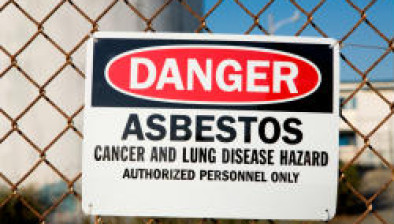Damages claim by relatives of asbestos victim to be determined by Scots law, appeal judges rule

The family of a mechanical fitter who died of an asbestos-related illness in England after inhaling the deadly dust while working as an apprentice at a shipbuilding company in Scotland should pursue their claim for damages under Scots law, after the Inner House of the Court of Session overturned a judge’s ruling that the case should be determined under English law.
Relatives of the late James Docherty raised the action in Scotland under the Damages (Scotland) Act 2011 because that was where the exposure to asbestos occurred, but the first defender, the Secretary of State for Business, Innovation and Skills, argued that the applicable law was English law because it was south of the border that the disease developed and where the deceased passed away.
The Lord Ordinary held that the pursuers’s claims for reparation based upon the Scottish legislation were “irrelevant” and that the case fell to be determined under English law, but appeal judges ruled that the “lex loci delicti” was Scotland and therefore the case should proceed to proof on the basis of Scots law.
Asbestos exposure
The Lord President, Lord Carloway, sitting with Lord Menzies and Lord Brodie, heard that Mr Docherty died in 2011 and that a post-mortem examination disclosed the presence of pleural plaques and indicated levels of asbestos exposure generally associated with asbestosis.
It was averred by the pursuers that the deceased was a mechanical fitter who served an apprenticeship with Scotts Shipbuilding and Engineering Company in Greenock, for whose liabilities the defender is now responsible, from about 1941 to 1947, during which time he was exposed to inhalation of asbestos dust.
Between 1954 and 1979 the deceased worked for Imperial Chemical Industries Ltd (ICI), the second defender, at their plant in Teesside, during which time he was again exposed to quantities of asbestos dust.
In about 2003 he began to experience respiratory symptoms and continued to suffer from chest problems from time to time thereafter.
In September 2009 he was admitted to hospital in Middlesbrough, where a CT scan showed inter alia basal bronchiectasis with fibrosis and mild pleural thickening, and he continued to suffer respiratory difficulties until he died in 2011.
Damages action
The present action for damages was raised in 2014 by the deceased’s widow, as an individual and as the deceased’s executrix nominate, and by 23 other relatives, but the deceased’s widow has since died and the case was being pursued by the other family members, most of whom live in England.
At the time when he began to experience respiratory symptoms, at the time of diagnosis and immediately prior to his death, the deceased lived in England.
It was a matter of agreement that the only claims made in the present action that would be competent under English law were (i) the executors’ claim for the deceased’s non-pecuniary loss prior to his death, including loss of expectation of life; (ii) the executors’ claim for the care provided by relatives to the deceased during his illness; and (iii) the deceased’s funeral expenses.
However, the pursuers’ primary claim was based in terms of section 4(3)(b) of the 2011 Act, under which the damages available would be greater than those in England.
The case came before the Lord Ordinary to consider whether the applicable law was determined by the Rome II Regulation (no 864/2007) on the law applicable to non-contractual obligations; and if not, the applicable law under the common law of Scotland.
The judge held that while the circumstances of the case did give rise to a conflict of laws, the Rome II Regulation had “no application” to it.
The issue of which law applied to the claim against the defender, being the lex loci delicti, was determined by the Lord Ordinary as English law, which resulted in dismissal of the action in so far as it proceeded at the instance of the all the family members other than that of the late widow.
‘Legal black hole’
The pursuers appealed, arguing that the Lord Ordinary had made “two errors of law”.
The first, it was submitted, was holding that the lex loci delicti referred to the place where the “harmful event” occurred or the injury was sustained, rather than the place where the “wrongful act” - in this case, the exposure - had occurred. The Lord Ordinary had confused the question of breach of duty - the delict - with whether a cause of action arose.
Secondly, it was submitted that the Lord Ordinary’s reference to, and reliance upon, a place where the harmful event had occurred had been drawn from the terms of the Brussels Convention on Jurisdiction and the enforcement of judgments in civil and commercial matters 1968, but this meant both the place where the damage had occurred and the place of the event which gave rise to it.
It was argued that English law would identify Scots law as the relevant law and an application of English law would result in a “renvoi” to Scots law on the application by the Scottish courts of the applicable English choice of law rules.
If the pursuers’ approach were not followed, there would be an “absurd consequence” of the pursuers’ claims falling into a “legal black hole” in which neither Scots law nor English law applied.
Applicable law
In a written opinion, the Lord President, Lord Carloway said: “It is immediately clear that the defender’s proposition, which was accepted by the Lord Ordinary, would have surprising consequences. First, a defender operating exclusively in Scotland, could find himself subject to the law of a country with which he had no prior connection. Secondly, a pursuer, who had worked in Scotland and sought to sue his employer, could deprive himself of a claim for damages by the act of going to a foreign country where the law differed.”
He added: “A delictum in Latin, and Roman law, is a fault or omission or, generally, an offence (crime). The lex loci delicti is the law of the place where the fault, omission, or offence takes place. It is the place of the act of the defender which constitutes the wrong. It sets the law to be applied to a person’s actings as the place where those actings occurred and not where any resultant harm chances to emerge.
“The delict (or quasi delict) is the act of the defender in exposing the deceased to asbestos. So far as this action is now concerned, this occurred in Scotland, which is thus the locus delicti. Scots law therefore, not surprisingly, governs the defender’s operations in Greenock relative to their workforce…In establishing the lex loci delicti, the emphasis is on the place of the defender’s actings, and not the place where an injury emerges.”





















